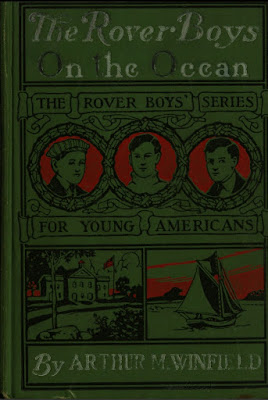THE ROVER BOYS ON THE OCEAN
OR A CHASE FOR A FORTUNE
BY Arthur M. Winfield
(Edward Stratemeyer)
INTRODUCTION
My dear Boys: "The Rover Boys on the Ocean" is a complete tale in itself, but forms a companion volume to "The Rover Boys at School," which preceded it.
In the former volume I tried to give my young readers a glimpse of life as it actually is in one of our famous military boarding schools, with its brightness and shadows, its trials and triumphs, its little plots and counterplots, its mental and physical contests, and all that goes to make up such an existence; in the present tale I have given a little more of this, and also related the particulars of an ocean trip, which, from a small and unpretentious beginning, developed into something entirely unlooked for an outing calculated to test the nerves of the bravest of American youths. How Dick, Tom, and Sam, and their friends stood it, and how they triumphed over their enemies, I will leave for the story itself to explain. This volume will be followed by another, to be entitled, "The Rover Boys in the jungle," telling of curious adventures in the heart of Africa.
As the first volume of the series was so I well received, my one wish is that the present tale may find equal favor at your hands.
Affectionately and sincerely yours,
EDWARD STRATEMEYER
September 20, 1899
About the Author
The PDF might take a minute to load. Or, click to download PDF.
If your Web browser is not configured to display PDF files. No worries, just click here to download the PDF file.




No comments:
Post a Comment